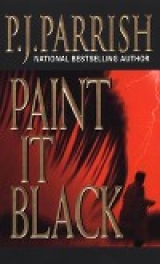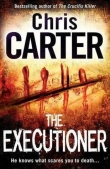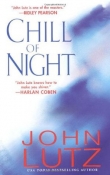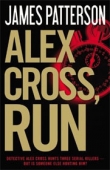
Текст книги "Paint It Black"
Автор книги: P. J. Parrish
Жанры:
Триллеры
,сообщить о нарушении
Текущая страница: 12 (всего у книги 20 страниц)
Chapter Twenty-eight
“Tell me again about this guy, Van Slate,” Farentino said, as she turned a corner.
Louis loosened his grip on the armrest and reached for his glasses. After the interview with Roscoe Webb last night, they had switched their focus back to white suspects. And now they were on their way to see Matthew Van Slate again. Louis had suggested to Wainwright that Emily come along this time to get a reading on Van Slate. Wainwright had agreed; he and Candy were following them in another squad car.
Emily was driving the Sereno Key cruiser and she seemed to have two speeds: fast and get-the-hell-outta-my-way. Louis tried not to look at the water as they sped across the causeway. He opened Van Slate’s file.
“Matthew Van Slate. Arrested and convicted of a racially motivated beating last summer. Served ten months. His father, Hugh, is a high-profile local who helped get the sentence reduced.”
Emily reached down and turned up the air conditioner. “Tell me the circumstances,” she said.
“He and two friends followed a black man and white woman from a bar, ran them off the road, and beat the guy up.”
“How bad?”
“Hospitalized him.”
“What’s his beef with blacks?”
“He thought his wife left him for a black guy.”
Farentino was quiet for a minute, then asked, “Did they use weapons?”
Louis closed Van Slate’s file. “Their fists and a board.”
“Did they all participate?”
“Yes.”
Farentino shook her head slightly. “Did he confess when he was caught?”
Louis reopened the file and read down the page. “Yes, after confronted with a witness.”
“How many times has this guy told you to get lost?”
“Twice.”
Farentino was quiet as they pulled up to Van Slate’s apartment. She killed the engine and they sat there for a moment waiting for the second cruiser with Wainwright and Candy.
“What do you think?” Louis asked Emily.
“I’ll tell you when we’re done talking to him,” Emily said.
Van Slate came out of his apartment just as Wainwright’s cruiser pulled in. He was carrying a small cooler. He locked his door and turned, freezing when he saw the two cruisers in the lot.
“Is that him?” Emily asked.
“That’s our hero,” Louis said, getting out.
Van Slate turned back to his door, jiggling his keys, as if he was thinking about going back inside. But after a moment, he turned back and started out toward the parking lot, not even looking their way.
“Van Slate,” Louis called out.
Van Slate kept going.
“Hold it, Van Slate.”
He stopped and turned. Wainwright and Candy came forward. They formed a half circle around him and as Van Slate’s eyes moved over them, Louis could see him tense.
“Who’s dead now?” Van Slate asked.
“Stay cool, Van Slate. We just want to ask you a few questions,” Wainwright said. “Why don’t you come down to the station with us?”
Van Slate set the cooler on the top of a black pickup. He looked at Louis.
“What is your problem with me?” he said. “You’re not even a cop and you got these guys—the real cops—believing I’m some sort of serial killer.” Van Slate spat into the gravel. “And they call me the racist.”
“We just want to ask a few questions,” Louis said.
Van Slate spun around and slapped angrily at the bed of the truck, and took a few steps toward the apartment. Then he turned back. “All right. Ask. Right here. Right now. I’m not going anywhere.”
Wainwright glanced at Louis, then rubbed his jaw. “Suit yourself,” Wainwright said. “We got a witness that says the killer’s truck is blue.” Wainwright nodded at Van Slate’s shiny blue truck parked a few spots away. “That’s one piss-ass fairy color but to me, it looks blue.”
“Fuck,” Van Slate muttered, leaning against the black pickup. “Like I’m the only guy with a blue truck around here?”
“You’re the only guy around here with a blue truck and a record,” Wainwright said.
Louis looked at Emily and knew she was thinking the same thing, that Roscoe Webb said the truck he saw in the restaurant lot was dark, maybe blue, but definitely old and rusted.
“How long are you guys going to hassle me over that shit?” Van Slate asked, his voice rising. “This is fucking bullshit.”
Louis looked at Farentino. She was taking notes.
“Own a knife, Van Slate?” Wainwright asked.
Van Slate eyed Wainwright. “Christ.” He took a few steps and reached in the flatbed of the black truck he had been leaning against. He threw back the tarp and spread his arm toward it. “Be my guest.”
“Is this your truck?” Louis asked.
“Hell no. This piece of shit is the boatyard truck. I just drive it for work.”
Louis’s eyes swept over the rust-pocked black pickup and then he glanced up at Wainwright. Louis stepped forward and looked inside the flatbed. It was filled with tools, white plastic tubs of paint. There was a large, plastic case that looked like a toolbox.
“How about you open that for us, Van Slate?” Wainwright said, pointing to it.
Van Slate reached in and popped it open. Louis peered inside. It was a tackle box, filled with the usual fishing paraphernalia. But there were also eight knives, different shapes and sizes.
“We’d like to have those knives, Van Slate,” Wainwright said.
Van Slate threw up his hands. “Go ahead, take them! You’ll get them eventually anyway.” He leaned against the truck, his arms crossed. “You won’t find anything on any of them, except maybe some fish guts and worm shit.”
Wainwright nodded at Candy, who came forward, pulling a plastic evidence bag from his pocket. He carefully picked out the knives and bagged them.
“I want them back,” Van Slate said.
Wainwright spoke again. “You got any spray paint, Van Slate?”
“Spray paint? Yeah, I got—” he stopped, his eyes narrowing. “Why?”
They didn’t answer him. Louis could almost hear the gears in Van Slate’s brains grinding. “Did this guy paint a message on the walls?” Van Slate asked. When no one answered, he smiled. “Manson did that, he painted ‘Helter Skelter’ on the walls. You know, the Beatles song?”
Van Slate started singing the song, but then stopped suddenly. “No, wait! I got it. He wrote a message on the bodies or something, right?”
“Can you go get the paint for us?” Wainwright asked.
“They had paint on them. What color was it?”
“You tell us,” Wainwright said.
Van Slate shrugged. “White?”
Louis glanced at Emily. She was staring hard at Van Slate.
“Why white?” Wainwright asked.
Van Slate was suddenly interested in the conversation. “Well, it makes sense, don’t it? I mean, these dead guys are all black, right? Why would anyone paint them black? They’re already black.” Van Slate locked eyes with Louis, and a slow grin came over his face. “Shit, if I was doing this, I’d paint ’em white. You know, make ’em lighter. Do a Michael Jackson on ’em. Improve on nature.”
Louis resisted the urge to reach over and grab a handful of Van Slate’s T-shirt.
Van Slate’s grin widened. “This is a real kick in the ass, ain’t it?” he said. “Me helping you guys.”
“Go get the paint, Van Slate. That would be a help to us,” Wainwright said.
“Get a warrant,” he said.
“I will if I have to,” Wainwright said.
Van Slate was shaking his head, still smiling. “You guys are fishing, aren’t you? You don’t know who the fuck you’re looking for. You don’t even know why these poor assholes were even offed in the first place.”
He paused to pull a pack of Marlboros out of his jeans. “I read the paper. I know what they’re saying, that some guy with a hard-on toward black guys is doing it. You know what I think? I think these guys were all asking for it some way.”
Louis suddenly realized that here they were, four experienced cops, standing and listening to this scumbag’s opinions. He knew that suspects who could manipulate an interrogation were dangerous to investigations. But he wasn’t sure that’s what Van Slate was doing.
“Shut up, Van Slate,” Wainwright interrupted. “Nobody wants to hear your theories.”
“I do,” Louis said.
Van Slate’s eyes snapped to Louis, along with Wainwright’s. He lit his cigarette and blew the smoke over his head before he answered.
“You want to hear my opinion?”
“I do, too,” Emily said.
Van Slate focused on her for a second, as if he had just now noticed she was there.
“I can’t believe I’m helping you,” he said, smiling. “Okay, here it is. None of these dead guys had it coming for the reasons you’re thinking. From all appearances, they lived a very normal black life. They were no threat.”
“To who?” Louis asked.
Van Slate met his eyes. “To guys like me.” He took a quick drag on his cigarette. “Besides, no self-respecting racist—which I am not, by the way—would do these guys the way they were done.”
“Enlighten us,” Louis said tightly.
Van Slate’s eyes focused for a moment on Emily, on the pad and pencil in her hands. “Let me put it this way, if I’m going to beat the shit out of somebody, I ain’t going to get my hands dirty doing it.”
“Is that why you used a board on Zengo?” Wainwright asked.
Van Slate looked at him, a smirk on his face. “You’re learning.”
Louis looked away, his gaze settling on a dandelion poking through the gravel.
“Plus,” Van Slate said, “if this guy is a racist—which I am not, by the way—he’d be proud of what he did. He’d leave you a message. You know, like a dog pissing to show you he was there. And from what I hear, this guy leaves nada.”
Louis had heard enough. He turned and started back to the squad car.
Van Slate was an idiot, but one thing he had said had stuck in Louis’s mind: And you call me a racist?
A long time ago, he had learned not to turn a deaf ear when his instinct was trying to tell him something. But instinct—vibrations, gut feeling, whatever it was that had worked for him so well in the past—had failed him in Michigan. He’d been blindsided, not only by a killer, but by people he had grown to trust. He’d been wrong. Fatally wrong.
Was he wrong here, too? Was he going after Van Slate just because he was a small-minded bigot? Because he was white?
He heard Wainwright finishing up with Van Slate, but he didn’t care. Van Slate hadn’t murdered those men. Van Slate wanted no contact with blacks; he would never have gone to Queenie Boulevard. And his bigotry was too generalized, his hatred too unspecific. He had attacked Joshua Zengo, true, but it had come from some warped personal motive. These murders were seemingly without any reason. There was still no why—at least not that they had been able to see.
If a white man like Van Slate doesn’t kill a black stranger out of hate, what else could it be?
Wainwright, Emily, and Candy were coming toward him. They all stood, watching as Van Slate busied himself rearranging the tarp in the flatbed.
“He made a good point,” Emily said, closing her notebook.
“About what?” Wainwright said.
“About the murderer being proud of what he does,” she said. “Whoever murdered Tatum, Quick, and the homeless man doesn’t seem to care what we think. He hasn’t contacted anyone, hasn’t taken any souvenirs from his victims or left his mark. Most serial killers do.”
“You don’t call the paint a mark?” Wainwright said.
Emily shook her head. “I agree with Louis. I think it’s a symbol, something important to him alone. It’s not a sign that he was there. He’s not like the Zodiac killer. He’s not saying, ‘Remember me.’ ”
“What’s your take on Van Slate, Farentino?” Louis asked.
“Well, he definitely doesn’t fit the disorganized offender category. I guess a case could be made for organized—”
“In English, Farentino,” Wainwright said patiently.
She sighed. “I think Matt Van Slate is mean-spirited and a bigot. But I don’t think he’s a murderer. At least not this one.”
Wainwright looked at Louis. “You agree?”
Louis nodded. “I guess I couldn’t see past my disgust of this guy.”
Van Slate gunned the black truck. He gave them a taunting wave as he peeled out, spraying gravel.
“What an asshole,” Candy offered.
Wainwright watched the truck tear down the road. “Yeah,” he said. “But unfortunately being an asshole isn’t against the law.”
Chapter Twenty-nine
Wainwright came out of his bathroom, buttoning a fresh shirt. He stared at Louis and Emily, who were slumped in chairs around the conference table. It was heaped with files, faxes, and coffee cups.
“Why don’t you two go home and change? You’re starting to stink up the joint,” Wainwright said.
Emily was on the phone, on hold, but she ignored him. Louis rubbed his bristly jaw and took a sip of coffee. It was cold.
They had been up all night. Emily had worked feverishly, still plowing through the VI-CAP files. She had also called everyone she had already contacted, telling them to switch their focus to white suspects and racially motivated crimes. New faxes had begun coming in around eleven this morning, forming a pile on the table next to the discarded ones that focused on black suspects. Every hour, Candy had come in and deposited new faxes on the table. Emily doggedly went through each one, methodically reading it and assigning it its own file.
Louis had felt sorry for her and stayed to help, even though he thought the chances of finding a related case this way was like trying to find a lost pearl on the beach. But he had to admire her stamina if nothing else.
In the background, Louis could hear the crackle of the radio. Another shift was signing on after a long night of surveillance. Now it was four in the afternoon. They were still waiting for a fresh body to turn up. And they were all running on adrenaline, stale coffee, and frayed nerves.
Wainwright picked a bear claw out of the Dunkin’ Donuts box on the desk.
“Did the lab call back yet on whether Van Slate’s knives match?”
“Not yet,” Louis said. “They do have something on Roscoe Webb, though. No hairs, but they did find hair cream under his nails. It’s standard Vitalis.”
“Did Van Slate’s alibi check out?”
Louis nodded. “The bartender at the Lob Lolly said he was there until it closed at two and then he left.”
“So Van Slate couldn’t have been in that parking lot with Webb,” Wainwright said. He took a bite of the stale bear claw and tossed it back into the box.
“You find anything in the new VI-CAP stuff?” he asked.
“Nothing.”
“Fuck. When are we going to catch a break on this?”
Emily slammed down the phone. Louis and Wainwright looked over at her.
“Assholes,” she said. She felt them staring at her. “He says he doesn’t have time to look up cases that are five years old.”
“Farentino, look at it from their standpoint,” Wainwright said. “You’re asking them to stop whatever they’re doing and search for a case you don’t even know exists.”
“We have to find the first murder,” she said firmly. “It will tell us who he is.”
“Goddamn it, we can’t even solve these murders,” Wainwright said. “If you want to waste time looking for something that might have happened five years ago, be my fucking guest.”
Wainwright looked at Louis. “But don’t tie up my men with your hocus-pocus bullshit.”
“Dan—” Louis said.
Emily stared at Wainwright. “You narrow-minded old fart—”
“Farentino,” Louis said quickly.
“You don’t have a clue about what I’m doing here,” Emily said. “And you don’t want to know. You don’t want to know anything new, anything that doesn’t fit into your testosterone-poisoned world.”
Wainwright took a step toward the table, his blue eyes boring into her. “Testosterone? You wanna talk hormones, lady? It takes testosterone to do this job,” he said.
“And what does it take to work in OPR?” Emily shot back.
Louis stared at Wainwright. He thought he saw a flicker of embarrassment cross his face.
“Farentino, you’re the one who has no clue,” Wainwright said calmly.
Emily took off her glasses, pinching the bridge of her nose. She rose slowly, without looking at either of them. “I need some air,” she said.
She left, closing the door hard.
“Shit,” Wainwright muttered.
“She’s working her ass off, Dan,” Louis said.
“I know. I know.” He went to the watercooler, poured a cup, and slurped it down.
The phone on the conference table rang. It was Wainwright’s extension. Wainwright made no move to pick it up.
“You going to get that?” Louis said.
Wainwright grabbed the receiver. He listened, gave a few grunts in response, and hung up.
“That was the lab,” he said. “Van Slate’s knives aren’t even close. But they did identify the foreign tissue on the broken blade. It’s fish guts. Snapper, to be exact.”
Louis rose quickly. “He’s a fisherman.”
“Maybe,” Wainwright said. “The lab is still trying to match the blade, but they’re pretty sure it’s a fillet knife of some kind.”
Louis glanced at his watch. “I’m going to the docks. Can I take unit three?”
“We’ll take my car,” Wainwright said.
Louis paused. “What about Farentino?”
Wainwright looked at the files on the table. “She’s got her own work to do.”

It was nearly five by the time they turned onto San Carlos Boulevard, heading south toward Fort Myers Beach. Louis wove impatiently through the heavy traffic.
“Slow down, Louis,” Wainwright said.
“The boats get in around four-thirty at Fisherman’s Wharf. If we miss them, we have to wait till morning.”
“You know, that isn’t the only marina here. There’s dozens of them, and he could be working any one of them,” Wainwright said. “There’s a shitload of ’em near the beach here, a couple on Sanibel, more over in Cape Coral and up in Bokeelia, a couple on the river. And we got to consider the fact this guy could be back bay instead of ocean.”
“Back bay? The clerk at the Holiday Inn mentioned that. What is it?” Louis asked.
“Fishing for snook or tarpon in the bays and flats in small boats, usually with a hired guide. If our guy is a guide, we’ll never find him. There’s hundreds of them operating around here.” He let out a breath. “He could work at a bait shop or behind the fish counter at Winn-Dixie, for all we know.”
“But Quick was seen at Fisherman’s Wharf,” Louis said. “We know that for a fact.”
“So says your shrimp woman,” Wainwright said.
They pulled into the lot at Fisherman’s Wharf and got out. Beyond the snack bar, Louis could see four charter boats at dock, including the one with the broken generator he had seen on his first visit.
The wharf hummed with activity. Knots of sunburned men in polo shirts and bermudas were watching the crews haul the day’s catches out of the freezers and onto cleaning tables. The tourists were joking and gulping beer while crewmen silently and swiftly went about the business of filleting the fish. Other grim-faced crewmen hosed the decks and packed up lines and poles. The sun was in a deep slant now, and everyone just wanted to go home.
Louis watched the crewmen. They were all shapes and sizes, some wiry, some beefy. Any one of them could be the killer. Louis felt a spurt of adrenaline. He could be watching him right now and not even know it, but at least the net was finally narrowing.
He and Wainwright split up, each taking photos of the blade and Anthony Quick.
At the first boat, the Island Lady, Louis showed the photos of Quick and the blade to the captain and two crewmen, but none of the men recognized either. It was the same at the second boat, where one of the crewmen said that in his twenty years in the business he had never seen a fillet knife with a curved blade.
Louis waited near the bar for Wainwright to finish with the final boat of the four. As Wainwright drew near, Louis could tell he had had no luck either.
“Nothing,” Wainwright said.
“Damn, I was so sure,” Louis said. “You question every crewman?”
“Yeah. Shit, he could be right here under our noses but how are we going to tell?” Wainwright looked out over the water, then up to where the cars inched along on the skyway bridge. “I think we should head over to Deebolts before they clear out for the day.”
Louis nodded, not able to hide his disappointment. Laughter drifted over to him. The tourists had taken their party to the bar. Gulls circled overhead, their raucous cries competing with the men’s laughter and the thump-thump of Bob Seger singing “Night Moves.”
Louis’s gaze wandered out to the water again. He squinted. There was another charter boat coming in.
“Dan, look.”
The boat was larger than the others, a huge red and white two-deck catamaran that growled and spat out diesel fumes like some sleek monster. As it inched into its moorings, Louis made out the name on the bow: Miss Monica.
“You take this one and I’ll go to Deebolts and swing back and get you,” Wainwright said. He headed off to the parking lot.
Louis stood on the dock, waiting as the lines were secured. The six tourists onboard stood quietly at the railing. A couple of them looked green and they all looked eager to get off. The engines were cut. As the tourists filed off, Louis watched the two crewmen go through a perfectly choreographed tango of cleaning and stowing the gear—rubber waders, nets, fishing poles with reels the size of small bike tires.
Louis approached the nearest crewman.
“I’d like to speak to the captain,” he said.
The crewman, a tall wiry man with deeply tanned skin and bleached blond hair, eyed Louis. “What for?” he said.
“Just get him, please.”
The man tossed the line to the deck and trudged off. A few moments later, a short man of about sixty came forward. He wore wrinkled white shorts, a sweat-stained madras shirt, and a red baseball cap stitched with the name Miss Monica.
“I’m George Lynch,” he said. “What can I do for you?”
Louis introduced himself and explained that he was investigating the murders.
“I heard about it,” Lynch said. He took off his baseball cap and ran a hand through his sparse hair. “We were just talking about it on the way in.”
“We think the man who murdered these men might have some connection to the fishing business,” Louis said.
Lynch looked shocked. “Jesus.”
Louis stepped forward, holding out the photo of Anthony Quick. “Have you seen this man, Captain Lynch? He might have been a customer on your boat.”
Lynch studied the photo, frowning. “Maybe. I can’t say for sure. It’s been real busy of late.”
“Think hard. It would have been on March fourteenth, a Tuesday,” Louis said.
Lynch shook his head. “Just a minute. Hey, Woody, Ty! Come here!”
Two crewmen came forward. One was the tall blond, his lanky hair visible beneath a sweat-stained Miss Monica cap. The other man was shorter, black, wearing the same cap.
“Either of you remember this guy being onboard about two weeks ago?”
The blond man was staring at the photo. “Yeah, I remember him. He was with that six-pack we took out in the gulf.”
“Why do you remember him?” Louis asked.
“ ’Cause he was really pissed that he didn’t catch anything. I told him tough luck, that’s why it was called fishin’ and not catchin’.”
“Woody—” Lynch interrupted.
“He was mouthing off, Cap,” Woody said.
“I don’t care. He paid his money.” Lynch’s mouth pulled into a tight line.
“Was he with anybody?” Louis asked, pulling out a notebook and pen.
“Nah, came on alone. Left alone.”
“You saw him get into a car?”
Woody shook his head. “No, I sent him over to Dixie’s to buy some fish to ship home.” He stared at Louis. “Anything else?”
Louis shook his head.
“Go finish up,” Lynch said.
The crewmen left. Louis watched them. Woody went back to coiling lines. Ty was manning the cleaning table, pulling glistening silver fish up onto the wooden board and slitting them open with one expert thrust of his knife. Louis focused on the fillet knife. It was only about eight inches in length and perfectly straight. He pulled out the photo of the broken blade.
“Have you ever seen a knife like this before?” he asked Lynch.
Lynch looked at the photo. “That a fillet knife?”
“We were hoping you could tell us that.”
“Nothing like anything I’ve ever seen.” Lynch called again for Woody and Ty, but Woody had disappeared below. Ty came over.
“Ty, you ever seen a knife like this before?”
The crewman wiped his hands on his dirty cutoffs and took the photo. He stared at the photo for a long time. “Yeah,” he said softly. “I saw one like this once. A guy working in Montauk had one. It’s German-made, I think.”
“Montauk? That’s New York, right?” Louis said.
“You know his name?”
Ty shook his head. “He was here last winter. I haven’t seen him around this season.”
“Thanks, Ty,” Lynch said. “Finish up and you can go.”
“Okay,” Ty said. He noticed Louis looking at him and gave him a reticent smile, his hazel eyes dropping to the dock. He went back to the fillet table, bagging the fish in plastic filled with ice. Louis looked for Woody, but he was nowhere to be seen.
“You think these fellows were killed with fillet knives?” Lynch asked.
“We’re not sure. We haven’t identified the weapon yet, but it’s a good possibility.”
Lynch nodded emphatically. “I can see that,” he said. “We have to keep ’em sharp as razors.” He held up his left hand. “Look at this. I was filleting a pompano once and slipped. Lost my pinkie. Sliced it clean off.”
Louis stared at Lynch’s callused hand, trying not to think of the defense-wound slash marks on Anthony Quick’s hand.
“Captain Lynch,” he said, “what can you tell me about your crew?”
“My crew? Do you—” He stopped. “You guys think someone down here did this?”
“We’re just checking all possible leads,” Louis said.
“Tell me about your crewmen. How long have they been with you?”
Lynch looked uneasy. “Well, Ty’s been with me, geez, it has to be nearly three years now. Woody . . . let’s see. He came on this past November right here.”
“What’s both their full names and addresses?”
Lynch gave them to him.
Louis closed the notebook. “Thanks, Captain Lynch.”
“I had a third man,” Lynch said, “but he left a while back.”
“He left? Why?” Louis asked.
Lynch shrugged. “Who knows? These guys, they’re like Gypsies. It’s a transient business, and we don’t ask a lot of questions. The most important thing is just showing up.”
“When did he leave?” Louis asked.
“Oh, two or three weeks ago. Left me short.”
Louis flipped opened the notebook. “Name?”
“Gunther . . . Gunther Mayo.”
“How long did he work for you?”
“He came on last April up in Barnegat Light.”
Louis stopped taking notes. “Barnegat Light, New Jersey?”
Lynch nodded. “Yeah, that’s where we go in the summer.” When he saw the look on Louis’s face, Lynch added, “Something wrong with that?”
“You split your time between here and Jersey?” Louis asked.
Lynch nodded again. “Winter here, summer up north. We call it following the tuna.”
“Do all the charters here do that?”
“Nope. Just the bigger boats like the Miss Monica here.” He waved a hand proudly at the fishing poles stowed behind him. “We go after the big stuff.”
“Do you know where he might have gone?”
“Shit, he could be anywhere from Maine to Key West. That’s the circuit.”
“You know anything else about him?” Louis asked. “Where he lives?”
“I’m not sure. There’s a lot of seasonal rentals over around Buttonwood Street. You can walk there from here.”
Louis felt his patience drying up fast. “You don’t keep records of your employees, Mr. Lynch?”
“Not unless I have to.”
“What about Mayo’s vehicle?”
“Don’t know. Never saw him drive anything.”
Louis sighed. “Okay, let me ask you this. Did you ever hear Mayo make any racial slurs? Threats against blacks? Anything like that?”
Lynch shook his head. “He didn’t say much about anyone or anything. Quiet, moody kind of guy.”
“I don’t suppose you’d have a picture of him.”
Lynch started to shake his head, then paused. “You know, I might, I just might. Hold on.”
Lynch disappeared and came back with a stack of photos. He sifted through them and held one out to Louis. “That’s him behind the fat guy, holding the hose.”
It was a photo of four tourists standing at the rail of the Miss Monica, holding up their catches. Mayo was visible in the background, a blur of profile and dark hair worn in a ponytail.
“Can I see the others?” Louis asked, nodding at the stack in Lynch’s hand.
“You can have them,” Lynch said, handing them over. “These are just extras the tourists didn’t buy.”
Louis stuck the photos in his pocket. His fingers closed around a business card and he pulled it out. It was one of Farentino’s FBI cards on which she had scribbled the Sereno Key Police Department number. He printed his own name on the back and handed it to Lynch.
“Call me if you think of anything else or if Mayo shows up,” Louis said.
Lynch looked at the card. “Wow . . . FBI.”
Louis turned to leave. His eyes locked on the fishing gear now stowed neatly on the aftdeck. A question floated into his mind, but he knew no matter how he asked it, it would sound stupid. What the hell.
“Captain Lynch?”
The captain turned back to him.
“Do you ever have reason to use guns when you fish?”
“What?”
“Do you ever use a shotgun onboard?”
For a moment, Lynch looked at him like he was nuts; then he held up a hand. “Hang on.”
He went below and when he came back on deck, he was holding a slender metal pole about six feet long. Louis instantly knew it was the pole Roscoe Webb had seen.
“What is it?” he asked Lynch.
“A bang stick. We use it on sharks mainly.”
Louis came forward and gingerly took the pole.
“It ain’t loaded,” Lynch said.
“How—”
Lynch pointed to a cylinder on the top. “You load the shell in here and it kind of sits cocked on a spring device that is triggered by touching the tip to the target. In our case, the shark.” He pointed to a pin. “That’s the safety pin. Keeps you from shooting yourself in the foot.”
“It takes a shotgun shell?” Louis asked.
“Standard variety.”
“What about blanks?”
Lynch frowned. “Well, I heard of alligator hunters using blanks ’cause they don’t want the hides messed up. But a blank would only stun a shark.”
“Or a man,” Louis said, staring at the pole’s lethal tip. “Do all of your crewmen have one of these things?”
Lynch shook his head. “No need to. Most boats just keep one onboard.”
“Can I borrow this?” Louis asked.
Lynch shrugged. “Sure, we don’t use them much down here. But bring it back, okay? We need it for up North.”
Louis heard a car horn and looked to the lot. Wainwright was waiting in the squad car. Louis took one last look around the docks. For the first time, he felt a sense of progress. They had a fresh suspect. They had a weapon. Now all they had to do was put together the why behind it.
The shrieks of seagulls drew his eye back to the Miss Monica. Ty was washing down the cleaning bench, tossing the fish guts into the water. The gulls swarmed on them, screaming.








